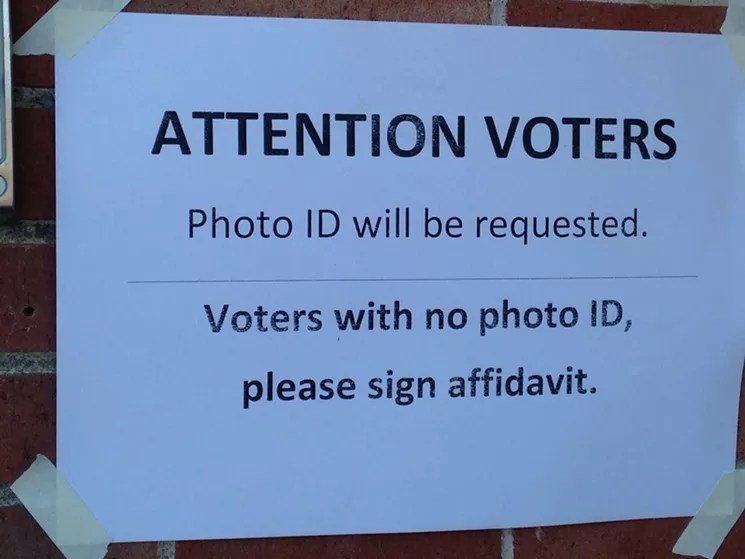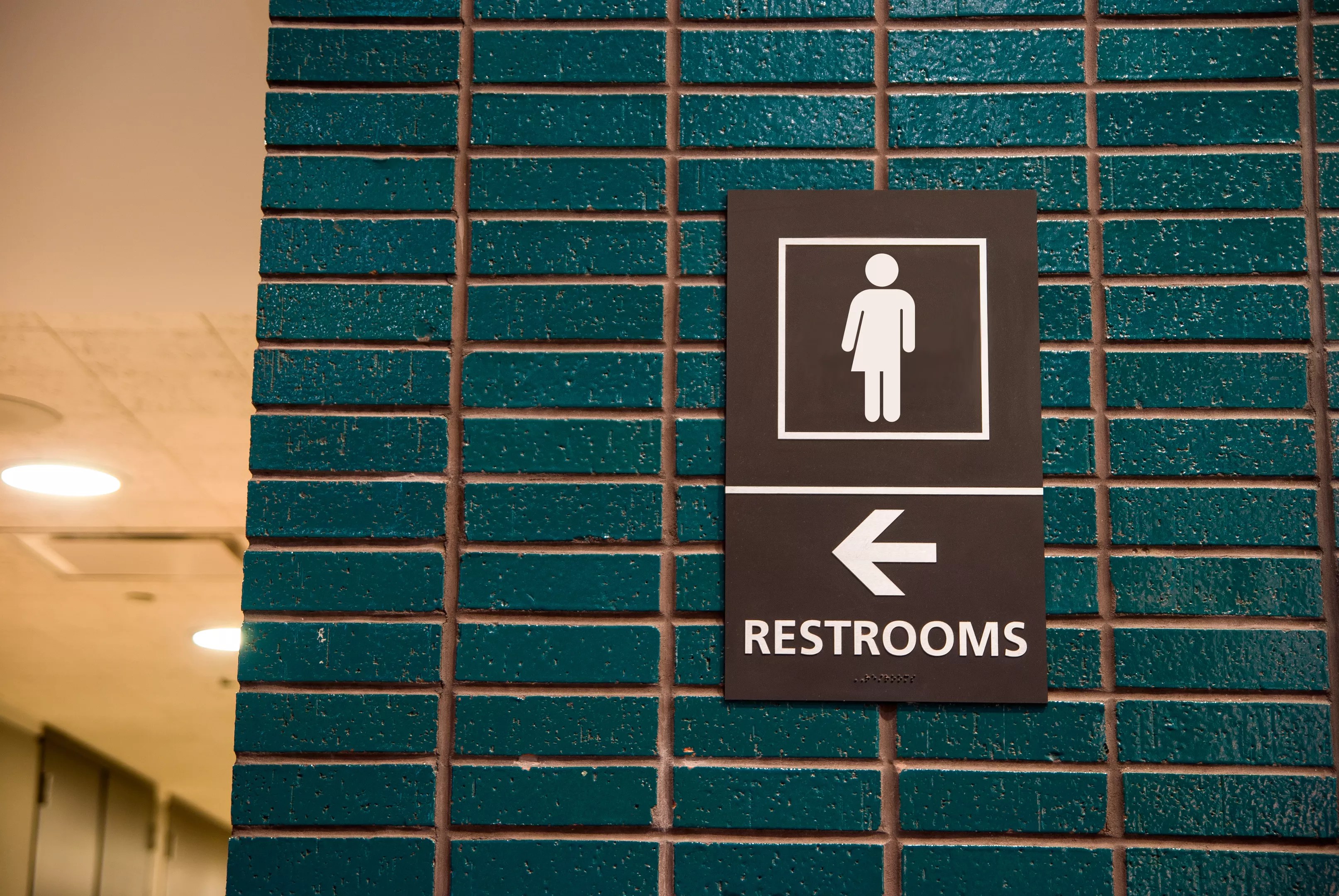
Mike Brooks

Audio By Carbonatix
There was a time when some viewed Texas as a model for the rest of the county. It wasn’t that long ago, either.
Rightly or wrongly, as the ’00s turned to the ’10s during Rick Perry’s third full term as governor, some saw Texas as a low-regulation, pro-business paradise, one you should get to as soon as possible, as long as you were capable of squinting hard enough to look past that state’s backward positions on social issues. People even wrote books about it.
Then something broke down. Starting with the 2012 Republican primary for U.S. Senate, Texas went a little crazy, making a series of choices that have made the state a laughingstock nationally. These aren’t choices that were bad from a partisan perspective; these are choices that went against the self-interest of the people making them. Texas has the resources and talent to dig out of the hole, but until it does, let’s take a look at how we got here.
1. Ted Cruz wins the 2012 GOP U.S. Senate primary.
Heading into the 2012 election season, it looked like David Dewhurst, Perry’s longtime lieutenant governor, was a sure thing for the Republican U.S. Senate nomination. He had more experience and cash than any of his opponents, including Ted Cruz, who to that point had never been elected to public office.
After finishing first in the initial round of voting, topping Cruz 45 percent to 34 percent, Dewhurst coughed up all of his lead and then some. Cruz won the runoff 57 percent to 43 percent. Instead of getting Dewhurst, who likely would’ve followed in the more moderate footsteps of incumbent Kay Bailey Hutchison, Texas got Cruz.
Since his election, Cruz has been instrumental in a government shutdown, run a losing campaign for president and gotten busted for working with Cambridge Analytica, the company that harvested Facebook information from at least 50 million users without their permission. He supported Donald Trump for president after calling Trump “utterly amoral, a pathological liar and a bully.”
There’s no reason for Texas to have a senator that only 40 percent of Texans said they viewed favorably, as happened in a recent Texas Tribune poll, but here we are.
2. The Texas Legislature makes Wendy Davis a household name.
There’s really no reason Wendy Davis should’ve been anything but an anonymous state senator from Tarrant County. The Texas GOP decided to make her famous, however, when it put together 2013’s House Bill 2, one of the United States’ strictest packages of abortion restrictions.
Davis filibustered the bill successfully, but it eventually passed in a special session called by Perry. In 2016, the U.S. Supreme Court gutted H.B. 2, rolling back most of its key requirements.
Despite her big loss to Greg Abbott in the 2014 gubernatorial election, Davis showed Democrats how to raise big money in Texas – she spent $36 million during her run – something Cruz’s 2018 challenger, Beto O’Rourke, is taking advantage of this year.
3. Texas declines to expand Medicaid.
When the Affordable Care Act passed in 2010, it allowed states to opt in to expanding the number of people covered by Medicaid. Texas has repeatedly refused to accept the expansion and the huge influx of cash that would come with it. As a result, the health of the state’s poorest residents has suffered in comparison with that of people in Arkansas and Kentucky, two Southern states that decided to accept the expansion.
According to a 2017 report in Health Affairs, Texas’ poor gained health care coverage at a slower rate than those in Arkansas and Kentucky, and were more likely to put off medical care because they couldn’t afford it. Texas Republicans could’ve taken the money from the federal government at any time, but they’ve refused to do so.

Wikicommons
4. Texas passes some of the United States’ strictest voter identification laws.
Although in-person voter fraud repeatedly has been shown to be next to nonexistent, Texas passed a stringent voter ID law in 2011, requiring everyone in the state who hoped to vote to have photo identification. Critics claimed that the law disproportionately affected the state’s poor and minority populations and took the state to court.
In the six years since, federal courts have ruled against the state and its voter ID law twice, but the state continues to fight, throwing good money at a problem that doesn’t exist.
5. Ken Paxton can’t accept that same-sex marriage is legal.
From the moment the Supreme Court legalized same-sex marriage, Texas Attorney General Ken Paxton has fought back. He told county clerks and other officials that they didn’t have to issue marriage licenses to same-sex couples if they didn’t want to. He almost got cited for contempt of court when he fought against the state amending a death certificate to reflect a gay couple’s union. He lost $600,000 of the state’s money when the 5th U.S. Circuit Court of Appeals awarded attorney’s fees to two couples who fought Texas’ marriage ban before the Supreme Court ruling.
Paxton has lost every fight he’s had with same-sex marriage, but he keeps fighting. In his latest effort, the attorney general is supporting a lawsuit in Houston that could end government employment benefits to same-sex couples in the state.
6. Texas Legislature passes anti-sanctuary cities bill, Senate Bill 4.
Despite the fact that the state has never defined what exactly a sanctuary city or county is, Abbott signed a bill banning them in 2017. The most notable effect of the bill so far is that it’s galvanized the state’s largest cities, including Dallas, Houston, San Antonio, Austin and El Paso, against the state government.
The cities have joined together to sue the state and stop the law, which requires local law enforcement to comply with federal immigration detention orders and imposes possible civil and criminal penalties on elected officials who don’t comply with immigration authorities. While the case is still ongoing, Abbott, Lt. Gov. Dan Patrick and the state’s Republican leadership picked a fight over a bill that even the state’s law enforcement community says is dangerous.

Texas’ bathroom bill helped the state lose one of its most important moderating influences.
355A/Shutterstock
7. Abbott and Patrick throw down for the bathroom bill.
The business community hated it. Cities hated it. The LGBTQ community hated it. Even the Dallas Stars came out against it.
Nevertheless, Abbott, and Patrick especially, pushed hard for a so-called “bathroom bill” during the 2017 legislative session, drawing the worst kind of national attention to the state. Despite laws on the books protecting any Texan using the bathroom, Patrick wanted to force people in the state to use the bathroom corresponding to the sex listed on their birth certificates when visiting public facilities.
Thanks to hard work from Joe Straus, the pro-business speaker of the Texas House, the bathroom bill failed to get a vote on the House floor in both the regular and special sessions of the Legislature. The rancor that came with his doing so wasn’t without a cost; Straus elected to retire rather than deal with Patrick again in 2019. The bathroom bill didn’t become law, but it helped Texas lose one of its most important moderating influences.
8. Cruz and Paxton push for a faulty census.
This winter and spring, both Cruz and Paxton have pushed the U.S. Commerce Department to add a question about citizenship to the 2020 U.S. Census. Doing so, as Commerce Secretary Wilbur Ross eventually decided to do, places Texas at risk of a big undercount, according to experts, because the state’s Latino population, citizens or not, will be less likely to answer the survey if it questions their legal status in the country.
If Texans aren’t counted accurately, the state could lose big time.
“If we don’t have everybody counted, we’re going to have to pay more to serve the same number of people,” says Eva DeLuna Castro, a budget analyst with the Center for Public Policy Priorities. “The formulas [for different federal programs] assume that a certain population size brings you a certain amount of money. … Texas already has an undercount – we don’t know how big it is. To make that even worse, it’s just more and more money that we have to come up with here instead of getting federal help to pay for it.”